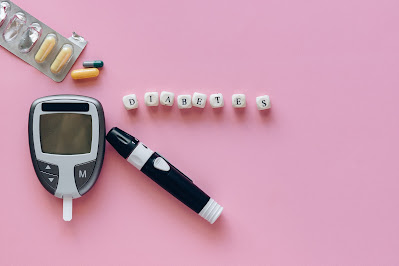The common symptoms and treatment of diabetes have been discussed in this article. Diabetes is a chronic medical condition that affects millions of people worldwide. It occurs when the body cannot produce enough insulin or properly use the insulin it produces, leading to high blood sugar levels. Diabetes can cause several health complications if not properly managed, including kidney damage, nerve damage, blindness, and even death.
Therefore, it is essential to choose the best treatment option to manage the condition effectively. In this article, we will discuss the best treatment options for diabetes.
Symptoms and Treatment of Diabetes
Symptoms of diabetes can vary depending on the type of diabetes and the individual. However, some common symptoms of diabetes include:
1. Frequent urination: High blood sugar levels can cause excess glucose to spill into the urine, leading to increased urination.
2. Increased thirst: As a result of frequent urination, the body loses more water, leading to increased thirst.
3. Extreme hunger: When cells are not getting enough glucose, the body may crave more food.
4. Fatigue: High blood sugar levels can make the body feel tired and sluggish.
5. Blurred vision: High blood sugar levels can cause the lens of the eye to swell, leading to blurred vision.
6. Slow healing: High blood sugar levels can affect the body's ability to heal wounds and infections.
7. Numbness or tingling in the hands or feet: High blood sugar levels can damage nerves, leading to numbness or tingling sensations.
It is important to note that some people with type 2
diabetes may not experience any symptoms, especially in the early stages of the
disease. Therefore, it is important for individuals to get regular check-ups
with their healthcare provider and to get tested for diabetes if they have any
risk factors, such as a family history of diabetes or being overweight. Early
diagnosis and treatment can help prevent or delay complications associated with
diabetes.
Best Treatment Options for Diabetes Patients
1. Medications
There are several medications available to manage diabetes,
including insulin, metformin, sulfonylureas, and DPP-4 inhibitors. Insulin is a
hormone that regulates blood sugar levels, and people with type 1 diabetes must
take it daily to maintain their blood sugar levels. Metformin is the most
commonly prescribed medication for people with type 2 diabetes. It works by
reducing the amount of glucose produced by the liver and improving the body's
sensitivity to insulin.
2. Lifestyle Changes
In addition to medications, lifestyle changes can also help
manage diabetes. Eating a healthy diet and getting regular exercise can help
control blood sugar levels. A healthy diet includes plenty of fruits,
vegetables, whole grains, lean protein, and healthy fats. Exercise can help
lower blood sugar levels by increasing insulin sensitivity.
3. Continuous Glucose Monitoring (CGM)
Continuous glucose monitoring (CGM) is a technology that
monitors blood sugar levels continuously throughout the day. It involves
inserting a tiny sensor under the skin that measures glucose levels in the
fluid between the cells. CGM can help people with diabetes make informed
decisions about their food, physical activity, and medication. It can also
alert them if their blood sugar levels are too high or too low.
4. Insulin Pump Therapy
Insulin pump therapy is a treatment option for people with
type 1 diabetes that involves wearing a small device that delivers insulin
continuously throughout the day. The pump is programmed to deliver insulin in
small doses based on the individual's needs. It can also be programmed to
deliver extra insulin during meals. Insulin pump therapy can help people with
diabetes achieve better blood sugar control and improve their quality of life.
5. Bariatric Surgery
Bariatric surgery is a weight-loss surgery that can help
people with type 2 diabetes achieve better blood sugar control. It involves
reducing the size of the stomach or rerouting the digestive system to limit the
amount of food that can be consumed. Bariatric surgery can also help improve
other health conditions related to obesity, such as high blood pressure and
sleep apnea.
6. Pancreas Transplant
A pancreas transplant is a surgical procedure that involves
replacing a person's diseased pancreas with a healthy pancreas from a donor.
The new pancreas can produce insulin and regulate blood sugar levels. A Pancreas
transplant is typically reserved for people with type 1 diabetes who have
severe complications or who cannot control their blood sugar levels with other
treatment options.
In conclusion, diabetes is a chronic medical condition that
requires proper management to prevent health complications. Medications,
lifestyle changes, continuous glucose monitoring, insulin pump therapy, bariatric
surgery, and pancreas transplant are all effective treatment options for
managing diabetes. It is essential to work with a healthcare professional to
determine the best treatment option for each individual's needs.
FAQs
What is the best treatment for diabetes?
The best treatment for diabetes depends on the individual's
needs and medical history. Medications, lifestyle changes, continuous glucose
monitoring, insulin pump therapy, bariatric surgery, and pancreas transplant are
all effective treatment options.
Can diabetes be cured?
Currently, there is no cure for diabetes, but it can be
managed effectively with the right treatment.
How do lifestyle changes help manage diabetes?
Eating a healthy diet and getting regular exercise can help
control blood sugar levels. A healthy diet includes plenty of fruits,
vegetables, whole grains, lean protein, and healthy fats. Exercise can help
lower blood sugar levels by increasing insulin sensitivity.
What is continuous glucose monitoring (CGM)?
Continuous glucose monitoring (CGM) is a technology that
monitors blood sugar levels continuously throughout the day. It involves
inserting a tiny sensor under the skin that measures glucose levels in the
fluid between the cells. CGM can help people with diabetes make informed
decisions about their food, physical activity, and medication.
Who is eligible for a pancreas transplant?
A Pancreas transplant is typically reserved for people with
type 1 diabetes who have severe complications or who cannot control their blood
sugar levels with other treatment options.






0 Comments